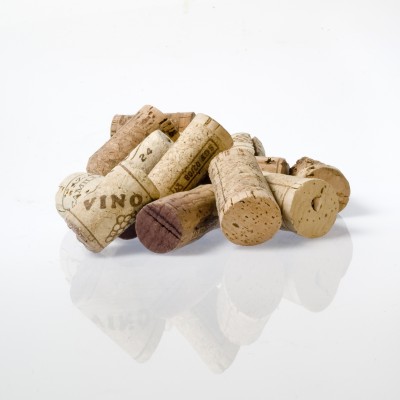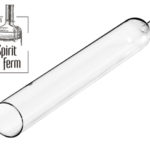Korki i inne zamknięcia do butelek

Gwałtowny rozwój korka jako głównego surowca stosowanego do zamykania butelek z winem (korki do win) nastąpił w XVIII wieku. W tym właśnie czasie, wybitny winiarz i poważany mnich Dom Perignon zastąpił dotychczas stosowany kołek drewniany na rzecz korków z korka. W tym też okresie powstał pierwszy korek grzybek, który po dziś dzień jest uniwersalnym zamknięciem do win musujących.
Korki przeżywają gwałtowny rozkwit, stosowane do każdego rodzaju alkoholu. W zależności od rodzaju i jakości korka stosowano:
– korki gorszej jakości oraz korki krótkie do piwa i wódek;
– korki średniej jakości i długości do win stołowych, win regionalnych;
– korki najwyższej jakości, długie, bez żadnych ubytków (kiedyś nazywane aksamitne), do najwyższej jakości win markowych;
Rozkwit korka jako jedynego, najlepszego zamknięcia trwał do XX wieku. Hegemonia korka została przełamana. Następuje gwałtowny rozwój innych rodzajów zamknięć do butelek. Zostają wprowadzone zamknięcia aluminiowe, zakrętki, korki syntetyczne.
Obecnie możemy wyróżnić zamknięcia:
– korki do win naturalne (inaczej nazywane korki lite) – większość win na świecie zamykana jest korkiem naturalnym, jest to najlepsze i najdroższe zamknięcie korkowe. Korki takie są wycinane z kory dębu korkowego w jednym kawałku. Korek taki spełnia wszystkie wymagania jakie stawia się idealnemu zamknięciu do wina. Przeznaczony jest do win markowych przeznaczonych na dłuższe leżakowanie.
– korki do win aglomerowane – najtańszy rodzaj korka, wykonywany z resztek po produkcji korków naturalnych i innych materiałów korkowych, jest to nic innego jak małe granulki korkowe, które są sklejane specjalnym klejem i prasowane (taki rodzaj sklejki). Jest to korek niskiej jakości, który często jest przyczyną wad wina. Jednak ze względu na swoją cenę, jego produkcja z roku na rok stale rośnie. Korki aglomerowane przeznaczone są do win gotowych do konsumpcji, rzadko kiedy stosuje się takie korki do wieloletniego przechowywania wybitnych win. Korki aglomerowane ze względu na swoją niewysoką cenę, są najczęściej stosowane do win domowych. Wino domowe zakorkowane takim korkiem może być przechowywane do 3-4 lat.
– korki do win warstwowe – jest to pośrednia forma pomiędzy korkiem aglomerowanym a litym (pośrednia jakościowo jak i cenowo). Polega to na tym, że do korka aglomerowanego dokleja się warstwy 1 lub dwie z korka litego. Warstwy mogą być doklejone z jednej strony jak i z dwóch stron. Jeżeli warstwy lite są doklejone tylko z jednej strony, wtedy korkując wino musimy pamiętać, by do środka butelki skierować tą część korka która posiada kręgi lite. Wino domowe zakorkowane takim korkiem możemy przechowywać do 4-6 lat.
– korki do win syntetyczne – budzą największe kontrowersje wśród winiarzy. Narodziły się w Ameryce gdzie są szeroko stosowane. Obecnie ich produkcja stale rośnie i zdobywają coraz większą popularność. Idealnie zabezpieczają wino, jednak z drugiej strony, ich szczelność powoduje, że wino nie dojrzewa podczas leżakowania. Dlatego ten rodzaj korków stosuje się do win białych jak i win stołowych, do win które przeznaczone są do szybkiego spożycia. Bardzo popularne są korki syntetyczne grzybki jako zamknięcie do tańszych win musujących. W domowym winiarstwie, też możemy pokusić się o korki syntetyczne. Ich największą zaletą będzie to, że wino tak zakorkowane nie zacznie przeciekać a korek nie zacznie nam pleśnieć, wina mogą być przechowywane przez wiele lat.
– zakrętki aluminiowe – coraz częściej stosowane w winiarstwie. Gwarantują niemal hermetyczne zamknięcie, nie mają wpływu na smak wina, wino tak zamknięte można szybko otworzyć bez żadnych dodatkowych „narzędzi”. W przypadku win w tradycyjnych butelkach 750ml i około, zakrętki stosowane są jedynie w winach stołowych. Jednak ten rodzaj zamknięcia szeroko stosowany jest w przypadku win sprzedawanych w większych butlach np.: 2,5 i 5 litrowych.
– kapsle – jest to najtańsze zamknięcie butelki. Kapsle nie zdobyły popularności jako zamknięcie do wina, natomiast niektóre szampany które leżakują przed ich sprzedaniem są zamykane kapslami, a dopiero przed ich wystawieniem na sprzedaż, zamienia się kapsel na korek grzybek.
Znaleziono w Google poprzez:
- korki do wina
- korki do butelek
- zakrętki do butelek aluminiowe
- rodzaje korkow do wina
- korki
- korki do butelek 5 litrowych
- korek dębowy







